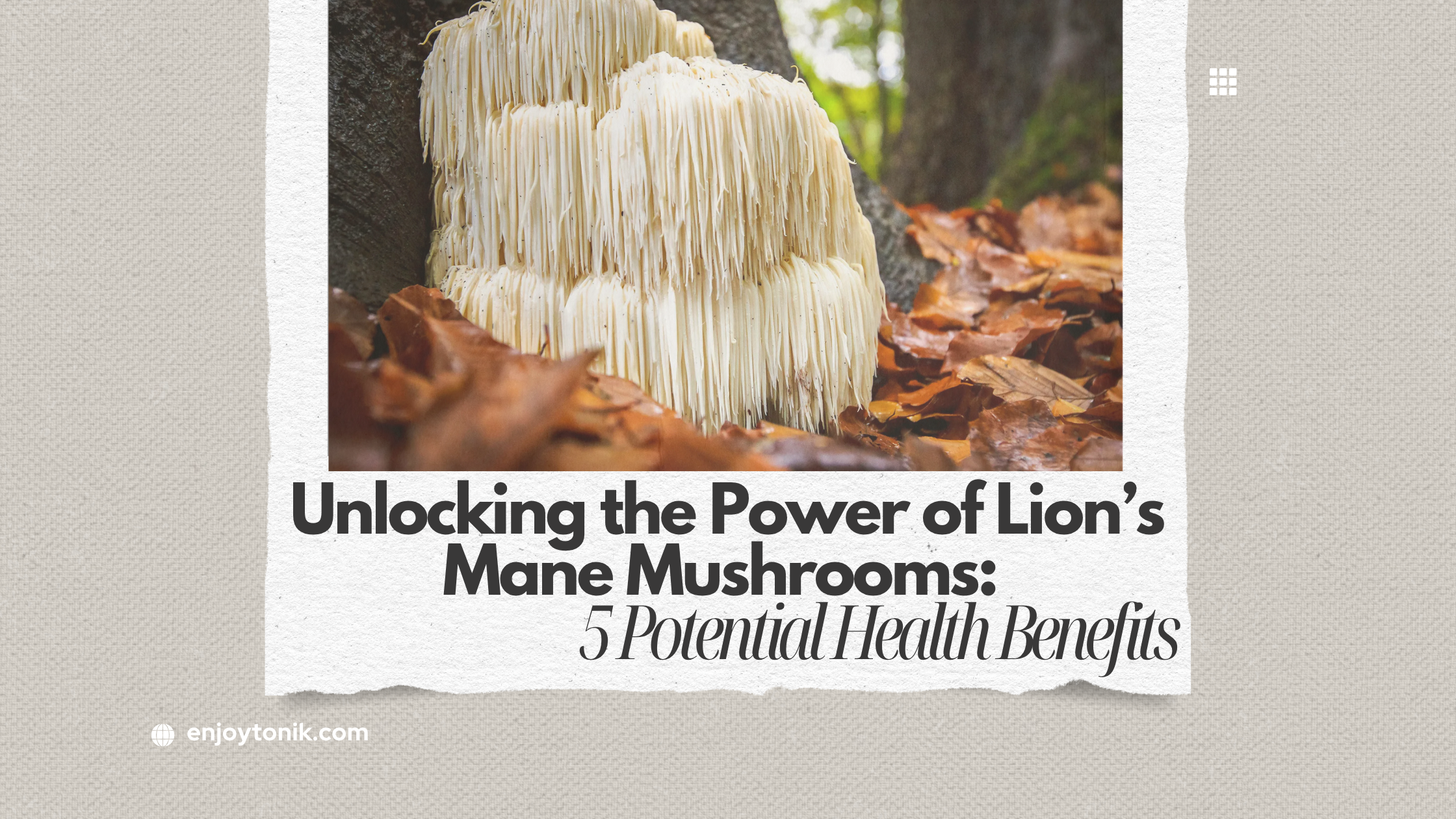Lion’s mane mushroom (Hericium erinaceus) is gaining popularity in the wellness and medical communities for its potential to support brain health, mood regulation, immune function, and more. Traditionally used in Chinese medicine, it's now being explored for its role in treating conditions like dementia, anxiety, diabetes, liver disease, and even cancer. Here's what the science says so far.
What Is Lion’s Mane Mushroom? Traditional Use Meets Modern Science
Lion’s mane is a white, shaggy mushroom known for its unique appearance — resembling the mane of a lion — and its long-standing use in Traditional Chinese Medicine.
It’s available today in multiple forms:
-
Capsules
-
Powders
-
Teas and tinctures, Beverages
In herbal medicine, lion’s mane is sometimes classified as an adaptogen, a substance believed to help the body respond to stress and fatigue. While its exact mechanisms are not fully understood, animal studies suggest it stimulates nerve growth factor (NGF) and may protect against nerve damage.

Practitioners claim a range of health benefits including:
-
Anti-inflammatory and antioxidant effects
-
Antimicrobial properties
-
Support for cholesterol and blood sugar regulation
These wide-ranging benefits make lion’s mane an intriguing candidate for further medical research.
Lion’s Mane and Brain Health: Focus, Mood, and Cognitive Protection
Cognitive Health & Dementia
Lion’s mane contains two key compounds — hericenones and erinacines — which are believed to promote neurogenesis (the growth of new neurons) and protect existing nerve cells. In animal studies, these compounds improved communication between brain cells and may offer protection against Alzheimer’s and Parkinson’s.
A 2019 study in Antioxidants demonstrated that lion’s mane extract helped regenerate brain cells and improve function in mice with chemically-induced dementia. Though human studies remain limited, the preliminary evidence is promising.
Mood Support: Anxiety and Depression
Lion’s mane may help regulate key mood-related neurotransmitters like:
-
Serotonin
-
Dopamine
-
Norepinephrine
One study of 30 menopausal women found that 0.5 grams of lion’s mane per day improved symptoms of anxiety, depression, and heart palpitations within four weeks. Another small trial in college students reported improved sleep and reduced anxiety after taking a proprietary lion’s mane formulation.
These findings support its traditional use as a natural mental health aid, though larger, controlled human studies are needed.
Physical Health Potential: Diabetes, Liver Protection, and More
Blood Sugar Control
A 2019 Scientific Reports study found that daily lion’s mane extract improved insulin production and glucose regulation in diabetic mice. It also helped reduce inflammation and support liver functions critical to blood sugar balance.
Liver Protection
In a 2015 mouse model of alcohol-induced liver injury, lion’s mane extract significantly reduced liver enzymes associated with inflammation — suggesting a hepatoprotective effect that may be useful in preventing liver disease in heavy alcohol users.
Gut Health & Ulcers
Traditionally used to treat digestive disorders, lion’s mane has shown antibacterial activity against Helicobacter pylori — the primary cause of stomach ulcers. A 2019 study in the International Journal of Medicinal Mushrooms revealed that lion’s mane extract could inhibit the bacteria’s growth in lab settings, potentially improving the effectiveness of standard antibiotic therapies.
Anti-Cancer Potential
Lab studies suggest that hericenones and erinacines possess antioxidant properties that may:
-
Reduce DNA damage
-
Prevent mutations
-
Slow the growth of liver, stomach, and colon cancer cells
That said, these findings are preliminary and based on test-tube or animal studies. More human clinical research is necessary.
Bottom Line
Lion’s mane mushroom offers exciting possibilities in the fields of neurology, mental health, and metabolic disease. While early findings are promising, human clinical studies remain limited. As with any supplement, consult with a healthcare provider before beginning use — especially if you’re managing a chronic condition or taking medications.
















